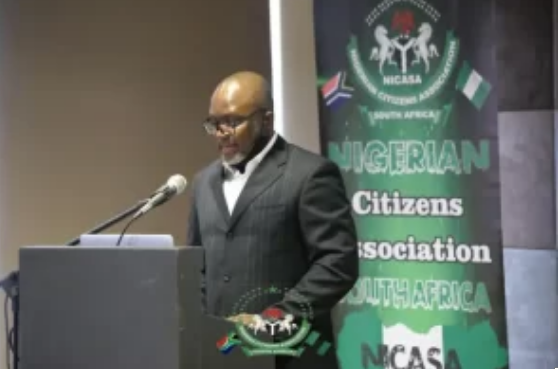Nigerian Citizens Association South Africa (NICASA) has called on compatriots to shun ethnic and religious differences and vote for candidates who are capable of tackling economic challenges.
The President General of NICASA, Mr Benjamin Okoli, said this in a telephone interview with our correspondent on Friday in Beijing.
He spoke on the sidelines of expectations by Nigerians living abroad on voting patterns and leadership style they desired from the next Federal Government administration in Nigeria.
Okoli said, “We need credible persons in seats of power; a person of sound mind and character, a person not entangled in corruption, who understands economics, politics and diplomacy.
“Nigeria deserves a great leader, especially at this time of lingering insecurity coupled with corruption, mismanagement, terrorism and strife in governance.
“Currently, there is desperation by some political class with no clear vision, to maintain the status quo, which must be resisted by voting in younger and ebullient candidates.
“Nigeria needs to move from consumption to production, we need efficient applications of economic policies that will drive the desired change, we need to secure Nigeria to make her great again.
“So, our interest as Diasporas is to make sure the right person emerges as our next president; although we cannot vote from here, we can do it through our sphere of influence in Nigeria.”
He also stressed the need for the government to put mechanisms in place to allow Nigerians in Diaspora to vote during elections.
According to him, the need for Nigerians in Diaspora to vote should not be overemphasized, because they equally have fundamental rights as citizens of their country of origin.
“We are all Nigerians with equal rights, our enormous financial and technical support makes a huge impact on the economy, but we are disenfranchised from voting during elections.
“Nigerians in Diaspora are affected by the leadership we have at home in our polity.
He called on the electorate to vote for capable a ND fit candidates during the polls.
“Despite enormous contributions into the state economy, Diasporas will still not be able to vote in the election.
“They are disenfranchised from participating in elections at home; this should not be allowed to continue,” he added.
He, however, expressed concern over the limitation of Diasporas to vote, saying they were left with the option of only talking to their families and friends to vote wisely to ensure the right candidates are elected.
